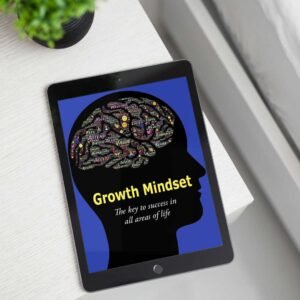Investing isn’t just about financial figures anymore; the focus on intellectual capital in investments is now pivotal for achieving superior returns and market edge. It is about disciplined strategy and psychological resilience—a blend that is meticulously captured by the investment principles outlined in “Only the Best Will Do,” married with the insightful exploration of wealth psychology found in “The Psychology of Money.”
These pivotal texts intricately weave together stories that emphasize the profound impact thoughts have on financial outcomes. They advocate that beyond mere financial intelligence, one must also cultivate an introspective understanding of personal biases, desires, and market-driven emotions.
This approach indeed presents a twofold journey, urging individuals not only to be discerning and analytical in their investment choices but also to foster a resilient, adaptable mindset capable of navigating through economic turbulence and seizing the fleeting moments of opportunity.
By marrying astute investment strategies with psychological resilience, we unlock a realm where financial stability thrives. Here, foresight, patience, and strategic thinking not only pave the way for wealth accumulation but also enrich every aspect of life, creating a legacy that goes beyond numbers.

Cultivating a Mindset of Excellence
Peter Seilern’s “Only the Best Will Do” dives deep into the philosophy of investing in high-quality assets. This approach is not about settling for what is readily available, but rather, it’s about pursuing the exceptional.
Here are key takeaways for those who aim to stand apart in the financial landscape:
Invest with Precision
Seilern emphasizes the importance of investing in ‘quality’ companies, which are characterized by long-term growth prospects, enduring competitive advantages, and robust financial health. This strategy requires meticulous research and unwavering discipline; not every investment opportunity that glitters is gold.
Long-Term Perspective
Success is not overnight. It’s about having the patience to allow compound interest and growth dynamics to unfold over time. By adopting a long-term perspective, investors can ride through the volatility of markets with confidence, ensuring that temporary downturns do not derail their overarching goals.

Focus on Value Creation
The essence of investing, as highlighted in the book, revolves around discerning the true value of an asset beyond its price tag. It’s about understanding what makes a company inherently valuable and investing in it for its potential to generate wealth over time.
Intellectual Capital in Investments: Insights from “The Psychology of Money”
Morgan Housel’s “The Psychology of Money” takes a different, yet complementary, approach. It explores the psychological forces that drive our financial decisions and how understanding these can lead to better outcomes. Intellectual capital in investments can be improved by studying this piece.
Wealth is Personal
Housel’s work teaches us that wealth accumulation is not solely about the amount of money earned but how it’s managed, saved, and invested. It’s deeply personal and influenced by individual beliefs, behaviors, and emotional responses to money.
Risk and Uncertainty
One of the book’s poignant lessons is the need to differentiate between risk and uncertainty. While risk can be managed or mitigated, uncertainty represents the unknown and is an inevitable part of financial decision-making. Embracing this uncertainty with a measured mindset can be a powerful tool in making informed decisions. Check how to manage risk here.
The Role of Humility
In the quest for financial success, humility is perhaps one of the less celebrated virtues. Housel posits that acknowledging what we do not know can be as valuable as the knowledge we possess. In the ever-evolving landscape of finance, adaptability and a willingness to learn from mistakes can pave the way for wise investment decisions.
Synthesizing Success Strategies
Blending the strategic insights from “Only the Best Will Do” with the behavioral perspectives of “The Psychology of Money” provides a holistic approach to achieving financial prowess and personal fulfillment.
Here are consolidated strategies for navigating the path to success:
Pursue Excellence: Seek quality and value in investments, career choices, and personal development.
Embrace Patience: Understand that true success is a long-term game, and transient setbacks are part of the journey.
Cultivate a Wealth Mindset: Wealth isn’t just about accumulation but about managing finances in a way that aligns with personal goals and values.
Be Adaptable: The landscape of finance and success is constantly changing. Stay informed, be willing to adjust strategies, and learn from both successes and failures.
Maintain Humility: Recognize the limits of one’s knowledge and the unpredictability of markets. Use this humility to make reasoned decisions and manage risks effectively.

Leveraging Emotional Intelligence in Financial Decision-Making
Beyond numbers, emotional intelligence (EI) is key in managing money. EI, the skill of managing emotions, is crucial in finance.
High EI lets you spot your emotional reactions to money moves. This helps keep a level head, avoiding decisions made in haste.
Plus, knowing others’ emotions aids in interpreting market moods. For instance, smart investors might see a market dip as a buying chance, not just bad news.
EI also helps manage stress, keeping your mind clear for long-term goals. Building EI improves not just your investment skills but also your relationships and self-awareness. Great to feed intellectual capital in investments.
By adding EI to your financial toolkit, you boost resilience and adaptability. This approach leads to better financial outcomes in an ever-changing world.
Achieving financial success and personal growth goes beyond wealth—it requires a strong, flexible mindset.
“Only the Best Will Do” and “The Psychology of Money” guide us here, stressing both smart investments and mental toughness.
This blend shows us our financial choices are deeply linked to our thoughts and perceptions, not just our actions.
By fostering patience, discipline, humility, and a constant eagerness to learn, we set ourselves up for more than just financial success.
This comprehensive strategy, blending practicality with philosophy, paves the way for a fulfilling and lasting achievement.
As we navigate through financial and personal growth landscapes, these principles should guide us. They light our path to a future rich in accomplishments and meaningful legacy.
Disclaimer: The information provided here is for educational purposes only. It does not constitute investment advice or a guarantee of performance. Investing involves risks, including the possible loss of capital. Seek advice from financial and tax professionals tailored to your financial circumstances and goals.



















